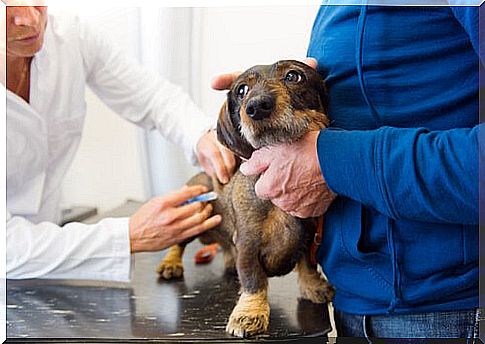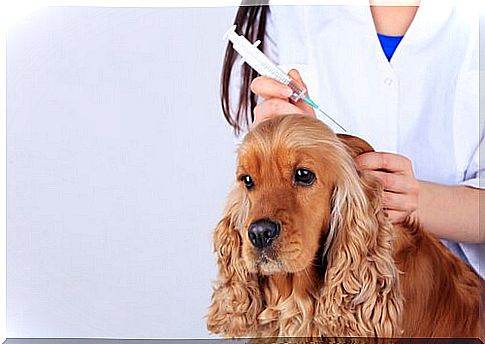Which Vaccinations Are Compulsory For Your Pet?

It is very important to take care of the health of our pets and to check them regularly. You also have to keep a schedule for vaccinations . This is how we can prevent serious, potentially fatal diseases.
The vaccinations build our pet’s immune system as they grow.
The benefits of vaccinations

Vaccinations are antigens that produce antibodies. This stimulates the immune system.
However, they only have a temporary effect. Therefore, it should be repeated regularly throughout the pet’s life.
Only a veterinarian is allowed to inject the vaccinations. You also have to keep the correct dates for vaccinations so that they achieve the desired effect.
Illnesses that are prevented by vaccinations
While vaccinations are important , we don’t have to vaccinate our dog against everything. It depends on which country we live in and which are the most common diseases there.
The pet owner must find out about the vaccinations the pet will receive.
Vaccinations in Germany
In principle, dog owners in Germany are not legally obliged to have their dogs vaccinated. This means that if you don’t vaccinate the animal, you cannot be punished.
It looks different when you travel to other EU countries with your dog. In this case, vaccination against rabies is usually necessary. However, you have to find out exactly which vaccinations are required in the destination country before you travel.
The moral duty of a dog owner, however, is to take care of their furry friend. That is why dogs are usually protected from diseases with various vaccinations:
- When the puppy is 6 weeks old: vaccination against parvovirus, distemper, and two multiple vaccines
- After 2 months: multiple vaccinations.
- After 3 months: repeated multiple vaccinations as reinforcement and vaccination against rabies. Usually the microchip is also used during this vet visit.
- After one year: multiple vaccinations (renewal) and renewal of the rabies vaccination.
- Annually: multiple vaccinations and rabies vaccination.
As a rule, when the dog is 8 weeks old, the dog receives the so-called six-fold vaccination against distemper, parvovirus, leptospirosis, rabies, hepatitis and kennel cough. A re-vaccination takes place between the 11th and 14th week of life, after one year annual or biennial vaccinations follow.
See your veterinarian for advice. This way you can be sure that you are protecting your dog and preventing diseases.
But what exactly is a vaccination?
Vaccination is a preparation of antigens that the dog is injected with. Their use stimulates the dog’s immune system to produce antibodies to eliminate the pathogen.
So we can see vaccination as a weakened form of the disease that does not cause any harm in the patient.
Vaccinations are used to help the dog’s body develop antibodies against various diseases. If one day he is exposed to the true disease, then his immune system is prepared to protect itself and defeat the virus.
The need for vaccination
Failure to vaccinate a puppy or adult dog is not just putting that animal at risk of potentially fatal diseases. It can infect other dogs as well.
Our dog could be a carrier of an illness and infect another dog that is going through the vaccination process or has a weak immune system.
If we have a puppy who has not yet been vaccinated, it is important that we do not bring him into contact with other dogs or take him for a walk on the street.
Know that only the urine of another dog, cat or infected rodent could infect our little friend. So his life would be in danger.
Side effects of vaccinations

The side effects of the vaccinations can sometimes be pain and itching, inflammation, bumps or the like.
It can also lead to gastrointestinal problems, the flu, respiratory or skin problems and in severe cases even cardiovascular problems.
The vaccinations were tested in laboratories to determine what possible side effects there might be. They are subject to strict quality controls to guarantee the animal’s health.









